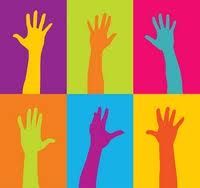
Have you ever wondered if there is an effective way you can make a big difference in your community? Look no further! This year, every person in the United States will be invited to complete the 2020 Census. Completion of this decennial census is required by the Constitution of the United States and helps to define areas that will have direct community impact over the next ten years. The goal of the census is to count every person living in the United States. The data collected from the 2020 Census is used to determine the amount of federal funding dollars each state, including Nebraska, will receive. Additionally, the results of the census outline our state and congressional legislative districts, and how many seats Nebraska will have in the House of Representatives in Washington D.C. The only thing you have to do is participate in the 2020 Census by making sure you are counted in the place where you live or stay on April 1, 2020. Below are some other important dates to remember.
January 21, 2020: 2020 Census counting began in some areas of Alaska.
March 12 – 20, 2020: The United States Census Bureau will begin mailing census information to households.
March 30 – April 1, 2020: People who experience homelessness will be counted by census takers in places such as shelters, the streets, and tent encampments.
April 1, 2020: The official Census Day, and people should respond to the census by phone, mail, or online.
April 2020: Census takers will be going to places where people live in group settings to ensure that every person is counted.
May – August 14, 2020: Census takers will be visiting people who haven’t responded to the census
December 2020: The Census Bureau will provide the completed 2020 Census data to Congress and the President.
The United States Census Bureau will mail every household information about the census and the ways to complete the form: online, by phone, or by mail. If a household doesn’t respond online or by phone, they will receive a paper form in the mail. If the person answering the census questionnaire for the household hasn’t responded by the end of April, a census taker may visit the home between May and August, to assist with completion of the form. People who experience homelessness, or who live in a group setting, will be counted by census takers. Safety is important and the United States Census Bureau employees will never ask you for your Social Security number, money, donations, or for information about your bank account or credit cards. In addition, they will have a valid identification badge that includes their photograph, a US Department of Commerce watermark, and an expiration date.
The 2020 Census aims to be accessible to all people with disabilities through a variety of access options, including large print or braille guides, American Sign Language (ASL) interpreters, and Text Telephone (TTY). Additionally, the following resources may be helpful for people who have questions about the census or accessibility. The Arc has created helpful 2020 Census plain language documents and videos in English and Spanish. You can also check out the accessibility resource created by the National Disability Rights Network and Georgetown Law Center on Poverty and Inequality. One of Nebraska’s Census Partners is the University of Nebraska Omaha – Center for Public Affairs Research and you can learn more information about the census on their website.
The census form will ask for information about the people in the household such as; how many people live there, type of residence, phone number, name, sex, race, and origin. Census answers are protected by law and your personal information is never disclosed by the Census Bureau. The Census questionnaire does not ask questions about citizenship. Likewise, there are not questions about disability on the 2020 Census. However, the Census Bureau does ask questions about disability in the American Community Survey, so look for that survey in a completely different mailing. The American Community Survey is random and not every household will receive one.
It’s so important that people with disabilities are counted during this census. A person with a disability may reside in a group setting, or it may be difficult for the person to respond. If you have a friend, family member, neighbor, or loved one with a disability make sure they’re aware the 2020 Census is taking place and help ensure they are appropriately counted where they live. If possible, provide them with the information and accessibility resources that are listed above.
The United States Census Bureau has worked hard to make this year’s census more accessible and easier to complete than ever before. Even social media outlets like Instagram, Twitter, Facebook, and YouTube are spreading the word about this important civic responsibility. Remember, getting everyone in Nebraska counted in the 2020 Census determines our representation in Congress, draws our electoral districts, and assures that accurate federal funding is provided to our state. Billions of dollars go to fund programs, services, and resources such as hospitals, schools, roads, Medicaid, Supplemental Nutrition Assistance Program, block grants, and public transportation. Get counted in the 2020 Census and help Nebraska communities build our future!
Karen has worked with Disability Rights Nebraska since October 1, 2015. She is part of our Legal Advocacy Team and conducts intakes, information and referral, case advocacy, and monitoring of facilities. Karen focuses her protection and advocacy in the areas of assistive technology, people with developmental disabilities, special education, return to work issues for Social Security beneficiaries, and voting access. In addition, she is an avid writer, photographer, and member of our Blog Team.

